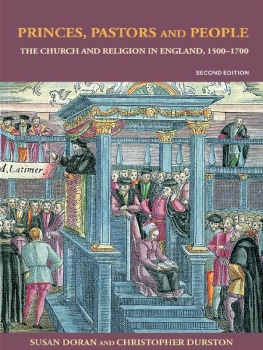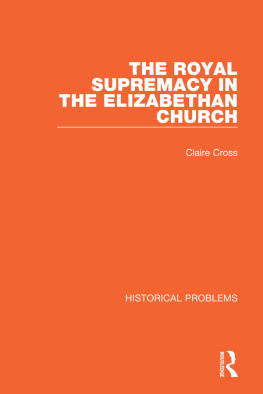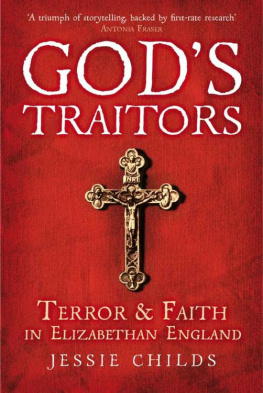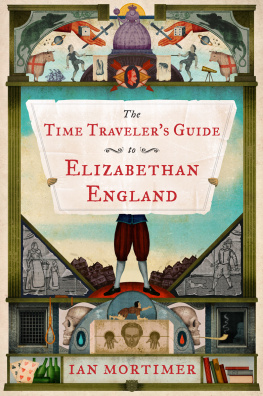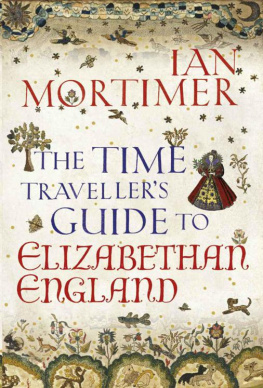Edwin Sandys and the Reform of English Religion
This book examines the complexities of reformed religion in early-modern England, through an examination of the experiences of Edwin Sandys, a prominent member of the Elizabethan Church hierarchy. Sandys was an ardent evangelical in the Edwardian era forced into exile under Mary I, but on his return to England he became a leader of the Elizabethan Church. He was Bishop of Worcester and London and finally Archbishop of York. His transformation from Edwardian radical to a defender of the Elizabethan status quo illustrated the changing role of the Protestant hierarchy. His fight against Catholicism dominated much of his actions, but his irascible personality also saw him embroiled in numerous conflicts and left him needing to defend his own status.
Sarah L. Bastow is Head of History at the University of Huddersfield.
Routledge Research in Early Modern History
Firsting in the Early-Modern Atlantic World
Edited by Lauren Beck
Early Modern English Noblewomen and Self-Starvation
The Skull Beneath the Skin
Sasha Garwood
Maurits of Nassau and the Survival of the Dutch Revolt
Comparative Insurgences
Nick Ridley
The Economic Causes of the English Civil War
Freedom of Trade and the English Revolution
George Yerby
Edwin Sandys and the Reform of English Religion
Sarah L. Bastow
Murder, Justice, and Harmony in an Eighteenth-Century French Village
Nancy Locklin
The Dirty Secret of Early Modern Capitalism
The Global Reach of the Dutch Arms Trade, Warfare and Mercenaries in the Seventeenth Century
Kees Boterbloem
Languages of Reform in the Eighteenth Century
When Europe Lost Its Fear of Change
Edited by Susan Richter, Thomas Maissen, and Manuela Albertone
For more information about this series, please visit: https://www.routledge.com/Routledge-Research-in-Early-Modern-History/book-series/RREMH
Edwin Sandys and the Reform of English Religion
Sarah L. Bastow
First published 2020
by Routledge
52 Vanderbilt Avenue, New York, NY 10017
and by Routledge
2 Park Square, Milton Park, Abingdon, Oxon, OX14 4RN
Routledge is an imprint of the Taylor & Francis Group, an informa business
2020 Taylor & Francis
The right of Sarah L. Bastow to be identified as author of this work has been asserted in accordance with sections 77 and 78 of the Copyright, Designs and Patents Act 1988.
All rights reserved. No part of this book may be reprinted or reproduced or utilised in any form or by any electronic, mechanical, or other means, now known or hereafter invented, including photocopying and recording, or in any information storage or retrieval system, without permission in writing from the publishers.
Trademark notice: Product or corporate names may be trademarks or registered trademarks, and are used only for identification and explanation without intent to infringe.
Library of Congress Cataloging-in-Publication Data
A catalog record for this book has been requested
ISBN: 978-0-367-35315-5 (hbk)
ISBN: 978-0-429-33064-3 (ebk)
Typeset in Sabon
by Apex CoVantage, LLC
To Mum and Dad for constant support.
To Ryan, Lily and Anna for welcome distraction.
Contents
My thanks to the University of Huddersfield for providing time to complete this manuscript. In particular, my thanks to Katherine Lewis for reading chapters of this book in advance of publication. This publication contains short sections from my previously published works including Defending the Faith (Pennsylvania State University Press, 2018) and Stiff-Necked, Wilful and Obstinate: Conflict in the Elizabethan Church, Northern History, 50 (2013). I would like to thank both the publishers for their permission to reproduce this material.
| Annals | John Strype, Annals of the Reformation and Establishment of Religion, and Other Various Occurrences in the Church of England, During Queen Elizabeths Happy Reign: Together With an of Original Papers of State, Records, and Letters, Vols 14 (Oxford: Clarendon Press, 1824). |
| BL | British Library, London. |
| CCEd | The Clergy of the Church of England Database 15401835, www.theclergydatabase.org.uk. |
| CSPD | Calendar State Papers, Domestic. |
| CSPD, Add | Mary Anne Everett Green, ed. Calendar of State Papers Domestic Series of the Reign of Elizabeth, Addenda 15661579, Vol. 25 (London: HMSO, 1871). |
| EEBO | Early English Books Online. |
| ODNB | Oxford Dictionary of National Biography, online edition, www.oxforddnb.com. |
| Salisbury | S.R. Scargill-Bird, Calendar of the Manuscripts of the Most Hon. the Marquis of Salisbury, Preserved at Hatfield House, Hertfordshire, Vol. 2: 157282 (London: HMSO, 1888). |
| SP | State Papers. |
| TAMO | John Foxe, The Unabridged Acts and Monuments Online (1586 edition) (Sheffield: HRI Online Publications, 2011). |
| TNA | The National Archives, Kew, London. |
Our vineyard hath flourished; behold the mere grace and favour of God towards his church: Little foxes devour it; behold the ingratitude of the people, resisting the grace of God, and abusing his mercy:1
So proclaimed Archbishop Edwin Sandys in a sermon given in York concerning the state of religion. The sermon identified the threat posed by those he characterised as little foxes who challenged the reformed religious settlement of the Elizabethan era. The little foxes Sandys referred to were those who failed to conform to the Elizabethan Church. Sandys (born c.1519) had experienced the full gambit of religious change brought by successive Tudor monarchs. He commenced his religious education in the reign of Henry VIII, but convinced of the need for religious reform was a strong evangelical voice by the time Edward VI was on the throne. He fully embraced the reforms of the Edwardian era, rose to become Vice Chancellor of the University of Cambridge, and by 1554 his evangelical credentials were so notable that the Duke of Northumberland requested him to preach a sermon in favour of Lady Jane Greys claim to the throne. This sermon, which implied his support for treason, combined with his evangelical religious beliefs, forced his exile in the reign of Mary I. He returned to England to hold prominent clerical roles in the reign of Elizabeth I and rose through the ecclesiastical hierarchy to become Bishop of Worcester (155970), then Bishop of London (15706), ending his career as Archbishop of York (157688). He was a man committed to religious reform, beset by the need to challenge those he saw as threatening the reformed Protestantism he believed in, and often his own worst enemy in seeking out a battle if one failed to present itself.
Taking Sandys as the central character in a story of religious change and upheaval in early modern England, this book illustrates the struggles facing those of the Protestant faith as they strove to convert the nation. They may have, in theory, triumphed over papistry but they were still facing opposition from Catholics within England and from those who felt the settlement did not go far enough. Alec Ryrie has argued that Protestantism was born in crisis and conflict and that it was through this experience that Protestants defined themselves.2 This book challenges the traditional categorisations of Puritan as a catch-all term for reforming clerics. It argues that Sandys, like many of his contemporaries, was not Puritan but his stance was far more nuanced and changed over time. In the Elizabethan era their confessional identity was still being shaped, and the Church of England was a Church but half-reformed in the eyes of many clerics, but the debate on religion had gone quite far enough for the monarch.3 Sandys found himself defending the religious settlement against both the forces of papists and Puritans. He was a preacher who advocated taking up the fight in both word and deed. He was often controversial and by no means the easiest man to get along with. Patrick Collinsons analysis of his character led him to described Sandys as irascible.4 Certainly Sandys correspondences tend to suggest that he was both easily offended and quick to anger. Sandys was in constant conflict, his disputes with Catholics may have been expected as the obvious enemies of a Protestant regime, but he also set himself in opposition to would-be allies. In short all those who Sandys felt were threatening the stability of the Elizabethan religious settlement were targets for his ire.


